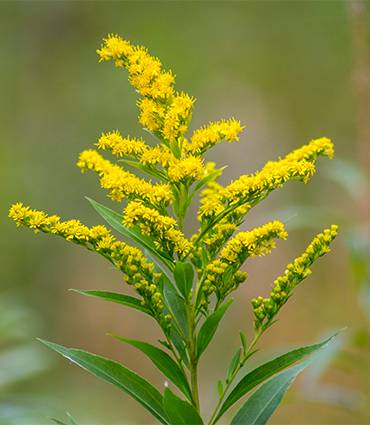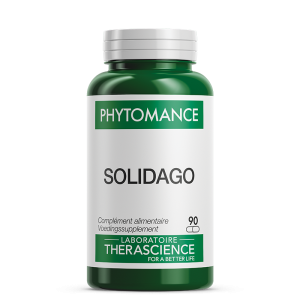
SOLIDAGO

Latin name:
Solidago virgaurea L.
Common name:
Solidago, Goldenrod
Family:
Asteraceae
Origin:
America, Africa, Asia, Europe
Part of the plant used
Flowering tops
Description
Solidago, also known as "goldenrod", entered the pharmacopoeia as early as the Middle Ages, where it was used to treat respiratory ailments.
Goldenrod contains flavonoids (quercetin, hyperoside, astragalin and kaempferol), but also phenol acids (chlorogenic acid and virgaureoside A). It contains tannins, saponosides and anthocyanosides. An essential oil made up of mono- and sesquiterpenes can be obtained from it.
Solidago is a plant used against kidney stones and for its diuretic action. Leiocarposide, a molecule present in goldenrod, has an analgesic, anti-inflammatory and spasmolytic effect. The plant also has analgesic activity.
The anti-infectious properties of Solidago virgaurea make it possible to inhibit the formation of biofilm by Candida albicans . This plant also has antibacterial activity, particularly on Escherichia coli, Staphylococcus aureus and Enterobacter faecalis . Because of its anti-inflammatory activity, goldenrod is used in cases of cystitis caused by E. coli.
Flavonoids and glycosides are responsible for the antioxidant activity of solidago.
The benefits
- Solidago is a natural antioxidant that improves the body's physiological resistance to severe environmental conditions. Goldenrod helps to relieve the signs associated with menopause. It helps maintain flexibility and joint mobility.
- Solidago contributes to normal urinary elimination functions.
Our products based on Solidago
-
€30.90











